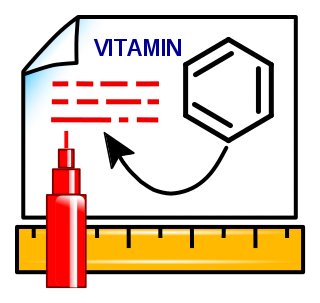 W
WACD/ChemSketch is a molecular modeling program used to create and modify images of chemical structures. Also, there is a software that allows molecules and molecular models displayed in two and three dimensions, to understand the structure of chemical bonds and the nature of the functional groups.
 W
WAdobe Authorware was an interpreted, flowchart-based, graphical programming language. Authorware is used for creating interactive programs that can integrate a range of multimedia content, particularly electronic educational technology applications. The flowchart model differentiates Authorware from other authoring tools, such as Adobe Flash and Adobe Director, which rely on a visual stage, time-line and script structure.
 W
WAgentCubes is an educational programming language for children to create 3D and 2D online games and simulations. The main application of AgentCubes is as computational thinking tool teaching children computational thinking through game and simulation design based on the Scalable Game Design curriculum.
 W
WAlice is an object-based educational programming language with an integrated development environment (IDE). Alice uses a drag and drop environment to create computer animations using 3D models. The software was developed first at University of Virginia in 1994, then Carnegie Mellon, by a research group led by Randy Pausch.
 W
WArt Authority is a producer of fine-art reproductions for art museums and consumers. The company evolved from an art education app developed for MacOS and iOS. The app presents art pieces in a virtual museum interface. A K–12 edition for the iPad displays only age-appropriate images. The app's developers acquired online art seller 1000Museums in 2016 and have since integrated its web site and product line into the app and the company.
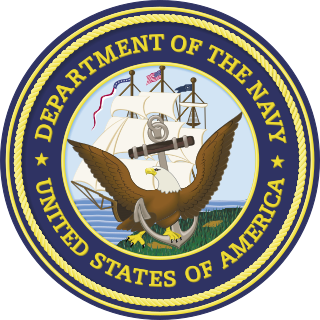 W
WAuthoring Instructional Materials (AIM) is a management system consisting of a set of commercial and government software used by the United States Navy for the development and design of training curricula and instructional content.
 W
WBack in Time is an education book app for iOS about the history of the universe, earth, life and mankind that uses a time analogy to explain different timescales. Released on September 22, 2011, it was developed by the software company Landka in collaboration with scientific institutions such as ESA/Hubble Space Telescope. The app was featured worldwide in the App Store and rapidly became a success, reaching the top sales of iPad book apps in 38 countries. Back in Time was distinguished by The New York Times and selected for the top 10 apps of the year. In 2012 it was recognized with a World Summit Award.
 W
WBobo Explores Light is an education book app for iPad that introduces children to light and light related topics. It was released in September 2011. Bobo was developed by Game Collage in collaboration with journalist Bob Tedeschi, creator and author of The New York Times’ weekly App Smart column. In 2012, Bobo Explores Light won an Apple Design Award.
 W
WChamilo is a free software e-learning and content management system, aimed at improving access to education and knowledge globally. It is backed up by the Chamilo Association, which has goals including the promotion of the software, the maintenance of a clear communication channel and the building of a network of services providers and software contributors.
 W
WCram.com is a free, web-based application for creating, studying, and sharing flashcards. Users on Cram.com have created over 68 million flashcards.
 W
WD.C. Heath and Company was an American publishing company located at 125 Spring Street in Lexington, Massachusetts, specializing in textbooks.
 W
WDinosaur Zoo is an educational video game developed as a collaboration between Swedish-based Dotnamestudios and UK-based Thumbspark interactive and was released for iOS in May 2011.
 W
WDriving simulators are used for entertainment as well as in training of driver's education courses taught in educational institutions and private businesses. They are also used for research purposes in the area of human factors and medical research, to monitor driver behavior, performance, and attention and in the car industry to design and evaluate new vehicles or new advanced driver assistance systems.
 W
Wedu-sharing is an open source e-learning integration solution. The core of the system is a repository for the co-operative creation, management and usage of objects such as: files, links, instances of integrated tools and courses of connected learning management systems such as Moodle. Different edu-sharing repositories can be connected to each other as well as to other repositories or repository networks through open interfaces. This enables the exchange of content and educational know-how across the borders of systems and organizations.
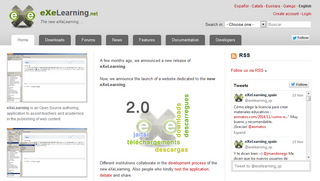 W
WeXeLearning is a free / libre software tool under GPL-2 that can be used to create educational interactive web content.
 W
WFET is a free and open-source time tabling app for automatically scheduling the timetable of a school, high-school or university. FET is written in C++ using the Qt cross-platform application framework. Initially, FET stood for "Free Evolutionary Timetabling"; as it is no longer evolutionary, the E in the middle can stand for anything the user prefers.
 W
WFirstClass is a client–server groupware, email, online conferencing, voice and fax services, and bulletin-board system for Windows, macOS, and Linux. FirstClass's primary markets are the higher-education and K-12 education sectors, including four of the top ten largest school districts in the United States.
 W
WFlowgorithm is a graphical authoring tool which allows users to write and execute programs using flowcharts. The approach is designed to emphasize the algorithm rather than the syntax of a specific programming language. The flowchart can be converted to several major programming languages. Flowgorithm was created at Sacramento State University.
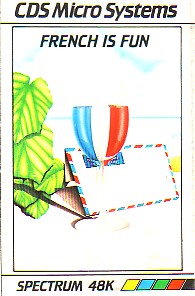 W
WFrench is Fun is an educational tool for the ZX Spectrum developed and released by CDS Micro Systems in 1983.
 W
WH5P is a free and open-source content collaboration framework based on JavaScript. H5P is an abbreviation for HTML5 Package, and aims to make it easy for everyone to create, share and reuse interactive HTML5 content. Interactive videos, interactive presentations, quizzes, interactive timelines and more have been developed and shared using H5P on H5P.org. H5P is being used by 17 000+ websites. In June 2018 the core team announced that H5P will be supported financially by the Mozilla Foundation within the MOSS program.
 W
Witslearning is a digital learning management system developed by the Norwegian company itslearning AS. It is designed for both K12 and higher education.
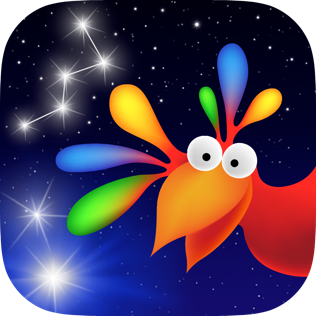 W
WKiwaka is an educational game for iOS, macOS and tvOS designed to teach children about astronomy. The app was developed by the Portuguese software company Landka in collaboration with scientific institutions such as the European Space Agency (ESA) and the European Southern Observatory (ESO).
 W
WKnewton is an adaptive learning company that has developed a platform to personalize educational content as well as has developed courseware for higher education concentrated in the fields of science, technology, engineering, and mathematics. The company was founded in 2008 by Jose Ferreira, a former executive at Kaplan, Inc. The Knewton platform allows schools, publishers, and developers to provide adaptive learning for any student. In 2011, Knewton announced a partnership with Pearson Education to enhance the company's digital content, including the MyLab and Mastering series. Additional partners announced include Houghton Mifflin Harcourt, Macmillan Education, Triumph Learning, and over a dozen others.
 W
WKno, Inc. was a software company that worked with publishers to offer digital textbooks and other educational materials. In November 2013, after raising nearly $100 million in venture capital, the company was acquired by Intel. The website was stopped and the service renamed to Intel Education Study later on.
 W
WKojo is a programming language and integrated development environment (IDE) for computer programming and learning. It has many different features that enable playing, exploring, creating, and learning in the areas of computer programming, mental skills, (interactive) math, graphics, art, music, science, animation, games, and electronics. Kojo draws ideas from the programming languages Logo and Processing.
 W
WLanSchool is a classroom management software owned by Lenovo and focused on school environments. The company is based in Research Triangle Park, North Carolina, and was founded as LanFan Technologies in February 1986. Two versions of the software are available: LanSchool Classic, the locally hosted version, and LanSchool Air, the cloud-based version. Both versions enable teachers to monitor students’ screens while in class, limit the websites students may visit, “push” a website to open on all classroom devices, and message the class.
 W
WMicrosoft Classroom was an online blended learning platform for schools that aimed to simplify grading assignments and student communication in a paperless way. It was introduced for Office 365 Education subscribers in April 2016.
 W
WOpen-Sankoré is a free and open-source interactive whiteboard software compatible with any projector and pointing device.
 W
WOpenEMIS, or Open Education Management Information System (EMIS), is an Education Management Information System for the education sector. Its main purpose is to collect, analyze, and report data related to the management of educational activities. Initially conceived by UNESCO, OpenEMIS serves as a response to Member States’ need in the area of tools for educational strategic planning.
 W
WPaperpile is a web-based commercial reference management software, with special emphasis on integration with Google Docs and Google Scholar. Parts of Paperpile are implemented as a Google Chrome browser extension. It was founded in 2012, and is produced by Paperpile LLC.
 W
WPolimedia is a system designed at the Universitat Politècnica de València for the creation of high resolution multimedia educational content in a cheap and easy way.
 W
WQuestion Writer is a quiz authoring tool for Microsoft Windows. It is used for authoring questions and compiling them into quizzes in the Flash file format. The software is published by Central Question.
 W
WSchoolTool is a GPL licensed, free student information system for schools around the world. The goals of the project are to create a simple turnkey student information system, including demographics, gradebook, attendance, calendaring and reporting for primary and secondary schools, as well as a framework for building customized applications and configurations for individual schools or states.
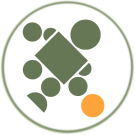 W
WSimSpark is a generic simulation system for various multiagent simulations. It supports developing physical simulations for AI and robotics research with an open-source application framework. It is commonly used in academic research and education.
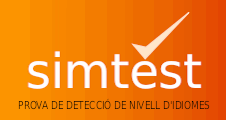 W
WSIMTEST is a computerized adaptive test (CAT) of foreign language ability designed and developed at the Universitat Autònoma de Barcelona in Catalonia, Spain. It classifies examinees according to 6 levels of proficiency as defined in the Council of Europe document: “A Common European Framework of Reference for Languages (CEFR): learning, teaching, assessment”.
 W
WSlideWiki is an open web-based OpenCourseWare authoring system. It supports learning content authoring and management and tools for collaboration/crowd-sourcing, translation, communication, evaluation and assessment, supporting the publication of open educational resources
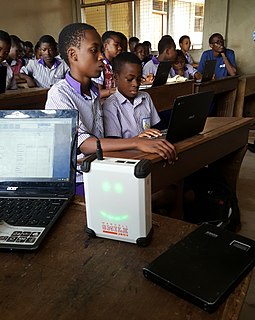 W
WStanford Mobile Inquiry-based Learning Environment (SMILE) is a mobile learning management software and pedagogical model that introduces an innovative approach to students' education. It is designed to push higher-order learning skills such as applying, analyzing, evaluating, and creating. Instead of promoting a passive, one-way lecture learning, SMILE engages students in an active learning process by encouraging them to ask, share, answer and evaluate their own questions. This renders students to be active agents of their learning and hones their creativity, critical thinking, and collaborating skills. Teachers play more of the role of a “coach,” or “facilitator”. The software generates transparent real-time learning analytics so teachers can better understand each student's learning journey, and students acquire deeper insight regarding their own interests and skills. This prepares students to understand their giftings and passions. SMILE is valuable for aiding the learning process in remote, poverty-stricken, under-served countries, particularly for cases where teachers are scarce.
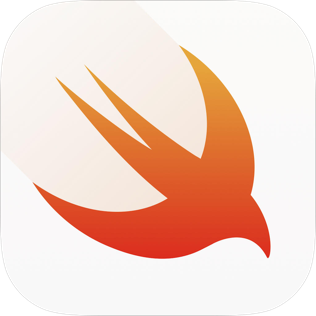 W
WSwift Playgrounds is an educational tool and development environment for the Swift programming language developed by Apple Inc, initially announced at the WWDC 2016 conference. It was introduced as an iPad application alongside iOS 10, with a macOS version introduced in February 2020. It is available for free via Apple's App Store for iPadOS and Mac App Store for macOS.
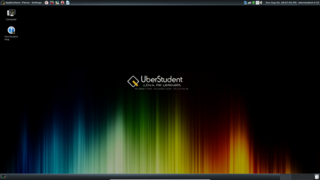 W
WUberStudent is a free and open-source computer operating system and collection of programs aimed especially toward higher education and secondary students and their teachers and schools. The lead developer of the Linux distribution placed the project on hold in May 2019 due to his son being amid a protracted battle with Acute lymphoblastic leukemia.
 W
WVisual Logic is a graphical authoring tool which allows students to write and execute programs using flowcharts. It is typically used in an academic setting to teach introductory programming concepts.
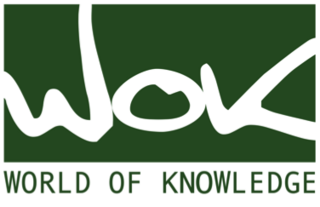 W
WWorld of Knowledge is a global Wikipedia inspired commercial project to enhance learning developed by company WOKcraft based on a community of users creating multiple choice questions for free public use. The abbreviation for the project is WOK and used to market quiz game mobile apps in a social network called the Knowledge Network.